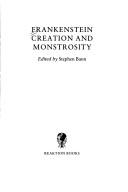| Listing 1 - 4 of 4 |
Sort by
|
Book
ISBN: 9782252037461 2252037466 Year: 2010 Volume: 51 Publisher: Paris: Klincksieck,
Abstract | Keywords | Export | Availability | Bookmark
 Loading...
Loading...Choose an application
- Reference Manager
- EndNote
- RefWorks (Direct export to RefWorks)
Les études cinématographiques sont depuis longtemps dominées par ce que Jacques Bouveresse appelle « la phobie de l'extra-textualité » – qui est aussi celle du sens : le « vrai » sujet du cinéma devrait être... le cinéma.Pourtant, le regard que les spectateurs portent sur les films n'est pas de cet ordre et si tout discours filmique résulte nécessairement du travail de la forme, celui-ci a cependant pour finalité l'intelligibilité de l'œuvre. Car, par-delà leur fonction de divertissement, première et nécessaire, les films de fiction répondent au besoin proprement humain de trouver des réponses, ne serait-ce qu'hypothétiques, lacunaires ou transitoires, à la question du « comment vivre », dans et pour quel monde, et pour quelle façon d'être soi — questions auxquelles nous sommes tous quotidiennement confrontés. Ainsi le cinéma complète-t-il la philosophie morale et la morale en explorant, quelquefois même mieux qu'elles, nos contradictions.
Motion pictures --- Film criticism --- Cinéma --- Critique cinématographique --- Philosophy --- Philosophie --- Essay On Cinema --- Philosophy. --- Cinéma --- Critique cinématographique --- Motion pictures - Philosophy --- Essay on cinema. --- Esthétique --- Esthétique

ISBN: 0948462590 0948462604 9780948462597 9780948462603 Year: 1994 Publisher: London: Reaktion books,
Abstract | Keywords | Export | Availability | Bookmark
 Loading...
Loading...Choose an application
- Reference Manager
- EndNote
- RefWorks (Direct export to RefWorks)
"Some of the most significant currents in modern intellectual and cultural history pass by way of Mary Shelley's Frankenstein (1816). By choosing in her book as a guiding theme the idea of the scientist who creates a monster, she both revives for the Romantic period the traditional link between scientific experiment and natural magic, and makes her own contribution to the debate on the difference between 'creation' and 'production' that was flourishing among the natural scientists of her time." "Frankenstein thus signals a remarkable integration of the broad issues of contemporary science and culture within the form of a popular fiction. In this way, it stands at the head of a productive tendency which is marked, over the coming century, by related works like Bram Stoker's Dracula and H.G. Wells' The Island of Doctor Moreau. Common to all of these works is a fascination with the ethics of creation, and the phenomenon of monstrosity, which provokes intriguing questions about the place of the monster in Western visual culture."--Jacket.
Frankenstein, Victor (Fictitious character) --- Frankenstein's monster (Fictitious character) --- Influence on cinema --- Science fiction, English --- Horror tales, English --- Scientists in literature --- Creation in literature --- Monsters in literature --- 7.046 --- CDL --- History and criticism --- Shelley, Mary Wollstonecraft, --- Frankenstein, Victor --- Frankenstein's Monster --- Frankenstein --- Dr. Frankenstein --- Frankenstein, --- English fiction --- Frankenstein, Victor (Fictitious character) - Influence on cinema --- Frankenstein's monster (Fictitious character) - Influence on cinema
Book
ISBN: 9782843032011 2843032016 Year: 2010 Publisher: Paris: La dispute,
Abstract | Keywords | Export | Availability | Bookmark
 Loading...
Loading...Choose an application
- Reference Manager
- EndNote
- RefWorks (Direct export to RefWorks)
Motion pictures --- Immigrants --- Cinéma --- Appreciation --- Appréciation --- Working class --- Italians --- Italians in motion pictures --- Social aspects --- Recreation --- Essay On Cinema --- Italians in motion pictures. --- Film. --- Einwanderung (Motiv) --- Geschichte. --- Italien (Motiv) --- Film --- Einwanderung (Motiv). --- Essay On Cinema. --- Italien (Motiv). --- Cinéma --- Appréciation --- Motion pictures - Social aspects - France - Lorraine --- Working class - Recreation - France - Lorraine --- Immigrants - France - Lorraine --- Italians - France - Lorraine --- Sociologie de la culture --- Italiens --- Immigrés --- Classe ouvrière --- Cinéma et société --- France --- Au cinéma --- Et le cinéma --- Lorraine (France) --- 1990-.... --- Immigrés --- Classe ouvrière --- Cinéma et société --- Au cinéma --- Et le cinéma
Book
ISBN: 9782866424176 2866424174 Year: 2007 Publisher: Paris : Cahiers du cinéma,
Abstract | Keywords | Export | Availability | Bookmark
 Loading...
Loading...Choose an application
- Reference Manager
- EndNote
- RefWorks (Direct export to RefWorks)
Motion pictures --- Civilization, Modern --- Motion pictures and the arts --- Cinéma --- Civilisation moderne et contemporaine --- Cinéma et arts --- Aesthetics --- Semiotics --- Esthétique --- Sémiotique --- Cinéma --- Cinéma et arts --- Esthétique --- Sémiotique --- CDL --- 791.41 --- Philosophy --- Essay On Cinema --- Modernité --- au cinéma
| Listing 1 - 4 of 4 |
Sort by
|

 Search
Search Feedback
Feedback About UniCat
About UniCat  Help
Help News
News